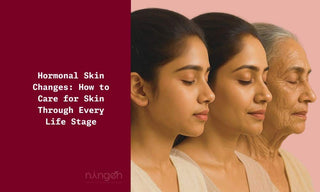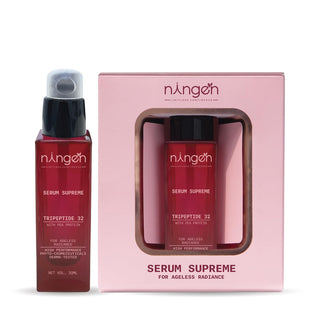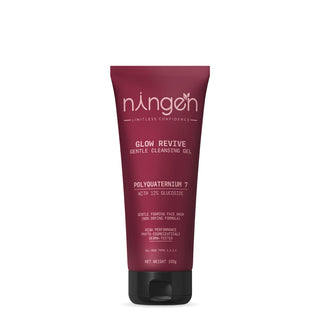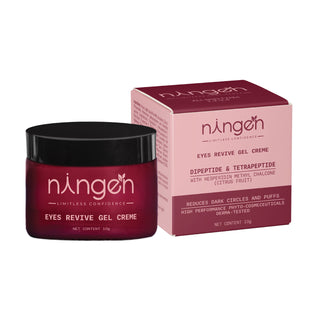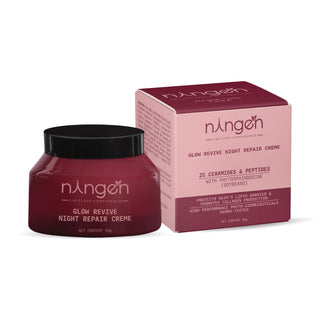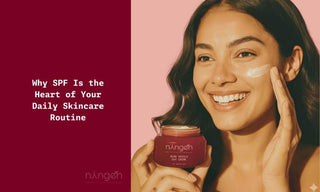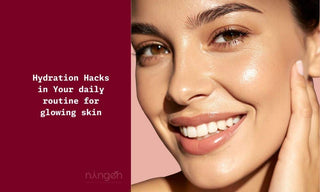TL;DR
Your hormones constantly influence your skin throughout every life stage, from teenage breakouts to pregnancy glow to menopausal dryness. Each phase requires a tailored approach that works with your body's hormonal changes. Key players include estrogen (promotes glow), testosterone (increases oil), and cortisol (causes stress-related issues). Success comes from consistency with gentle, science-backed ingredients rather than chasing expensive products, and professional guidance becomes essential during major transitions like puberty, pregnancy, and menopause.
Have you ever wondered why your skin seemed perfect one day, then suddenly broke out the next? Or why certain skincare products worked like magic during your twenties but stopped being effective in your thirties? The answer lies in your hormones, those powerful chemical messengers that influence everything from your mood to your skin's behavior.
Understanding how hormones affect your skin throughout different life stages isn't just fascinating science; it's the key to achieving healthy, glowing skin at any age. Let's dive into this comprehensive guide, “Hormonal Skin Changes: How to Care for Skin Through Every Life Stage,” that will transform your approach to skincare.
In this Guide;
What is the Hormone-Skin Connection?
Hormonal Skin Changes in teenage years (13-19)
Hormonal Skin Changes in Young Adult Years (20-29)
Hormonal Skin Changes in Thirties (30-39)
Hormonal Skin Changes in Pregnancy & Postpartum
Hormonal Skin Changes in Forties (40-49)
Hormonal Skin Changes in Fifties and Beyond (50+)
What is the Hormone-Skin Connection?
Your skin is essentially your body's largest hormone receptor. Every hormonal shift, whether from puberty, menstrual cycles, pregnancy, or menopause, directly impacts how your skin looks and feels.
Estrogen: The "glow" hormone that keeps skin thick, hydrated, and youthful by promoting collagen production and maintaining the skin barrier.
Progesterone: Can increase oil production, leading to clogged pores, especially during the luteal phase of your cycle.
Testosterone: Stimulates sebaceous glands, often causing oiliness and acne when levels spike.
Cortisol: The stress hormone that breaks down collagen and can trigger inflammatory skin conditions.
Growth Hormone: Peaks during sleep, helping with skin repair and regeneration.
Hormonal Skin Changes in teenage years (13-19)
During puberty, your body experiences a hormonal tsunami. Testosterone levels surge (yes, in both boys and girls), causing sebaceous glands to go into overdrive. This is why 85% of teenagers experience some form of acne.
Common Skin Issues
-
Increased oil production
-
Blackheads and whiteheads
-
Inflammatory acne
-
Enlarged pores
-
Uneven skin texture
Your Teenage Skincare Strategy
Morning Routine:
-
Gentle foaming cleanser with salicylic acid (0.5-1%)
-
Broad-spectrum SPF 30+ sunscreen (non-comedogenic)
Evening Routine:
-
Same gentle cleanser
-
Benzoyl peroxide spot treatment (2.5-5%) on active breakouts
-
Lightweight, non-comedogenic night moisturizer
Pro Tips for Teens: (napkin image)
-
Start with lower concentrations to avoid irritation
-
Never skip moisturizer, even with oily skin
-
Resist the urge to over-cleanse or scrub harshly
-
Consider seeing a dermatologist if acne is severe or causing scarring
Hormonal Skin Changes in Young Adult Years (20-29)
Your hormones begin to stabilize during your twenties, but monthly fluctuations still occur. This is the perfect time to establish a consistent skincare routine and address any lingering acne issues.
Common Concerns
-
Adult acne (often hormonal and concentrated around the jawline)
-
Post-acne marks and scarring
-
Early signs of environmental damage
-
Skin sensitivity from college lifestyle factors
Your Twenties Skincare Arsenal
The Golden Routine:
-
AM: Vitamin C serum (10-15%), moisturizer, SPF 30+
-
PM: Retinol (start with 0.25%), hydrating serum, night cream
Weekly Additions:
-
Clay mask once weekly for oil control
-
Gentle exfoliating acid (AHA/BHA) 2-3 times per week
Ingredient Spotlight:
-
Niacinamide: Reduces oil production and minimizes pores
-
Azelaic Acid: Fights acne and fades post-inflammatory hyperpigmentation
-
Hyaluronic Acid: Maintains hydration without heaviness
Hormonal Skin Changes in Thirties (30-39):
Collagen production begins to slow down by about 1% per year after age 25. Estrogen levels may start to fluctuate more dramatically, especially if you're considering pregnancy or are in perimenopause.
Emerging Issues
-
Fine lines around the eyes and mouth
-
Loss of skin firmness
-
Uneven skin tone
-
Hormonal acne flare-ups
-
Increased sensitivity to environmental stressors
Your Anti-Aging Prevention Strategy
Advanced Morning Routine:
-
Antioxidant cleanser
-
Vitamin C serum (15-20%)
-
Peptide moisturizer
-
SPF 50+ with zinc oxide
Nighttime Powerhouse:
-
Double cleanse (oil cleanser + gentle foaming cleanser)
-
Retinol or retinoid (0.5-1%)
-
Hyaluronic acid serum
-
Rich night cream with ceramides
Monthly Professional Treatments:
-
Chemical peels for texture and tone
-
Microneedling for collagen stimulation
-
Professional facials for deep cleansing
Hormonal Skin Changes in Pregnancy & Postpartum
Pregnancy brings a 10-fold increase in estrogen and progesterone, followed by a dramatic crash postpartum. These fluctuations can cause some of the most dramatic skin changes you'll ever experience.
Common Pregnancy Skin Changes
-
Melasma (pregnancy mask)
-
Increased sensitivity and reactivity
-
Stretch marks
-
Changes in skin texture and oiliness
-
Pregnancy acne or surprising skin clarity
Safe Pregnancy Skincare
Safe Ingredients:
-
Vitamin C
-
Hyaluronic acid
-
Glycolic acid (in low concentrations)
-
Zinc oxide sunscreen
-
Bakuchiol (natural retinol alternative)
Ingredients to Avoid:
-
Retinoids and retinol
-
High-dose salicylic acid
-
Hydroquinone
-
Chemical sunscreen ingredients
Gentle Pregnancy Routine:
-
AM: Gentle cleanser, Vitamin C, moisturizer, mineral SPF
-
PM: Oil cleanser, hydrating serum, pregnancy-safe night cream
Postpartum Recovery
After delivery, focus on barrier repair and gentle reintroduction of active ingredients. Your skin may be more sensitive due to hormonal fluctuations and sleep deprivation.
Hormonal Skin Changes in Forties (40-49):
Perimenopause can begin as early as your late thirties, but most women notice changes in their forties. Estrogen begins its gradual decline, affecting skin thickness, elasticity, and moisture retention.
What to Expect
-
Decreased skin thickness and firmness
-
Increased dryness
-
More pronounced wrinkles
-
Adult hormonal acne
-
Slower cell turnover
Your Fortieth Skincare Strategy
Intensified Anti-Aging Approach:
-
Stronger retinoids (prescription if needed)
-
Growth factors and peptides
-
Regular professional treatments
-
Focus on hydration and barrier repair
Sample Routine:
-
AM: Antioxidant serum, growth factor cream, SPF 50+
-
PM: Prescription retinoid, hyaluronic acid, rich repair cream
Professional Treatments to Consider:
-
Laser resurfacing
-
Radiofrequency treatments
-
Injectable treatments (if desired)
-
Regular dermatologist checkups

Hormonal Skin Changes in Fifties and Beyond (50+):
Menopause marks a significant drop in estrogen production, leading to some of the most noticeable skin changes. However, with the right approach, you can maintain healthy, beautiful skin.
Post-Menopausal Skin Characteristics
-
Significant decrease in collagen (up to 2.1% per year)
-
Increased dryness and sensitivity
-
Thinner, more fragile skin
-
Changes in skin texture and elasticity
-
Potential for age spots and uneven pigmentation
Mature Skin Mastery
Rich, Nourishing Routine:
-
AM: Gentle cream cleanser, antioxidant serum, rich moisturizer, SPF 50+
-
PM: Cleansing oil, retinol, hydrating essence, overnight repair cream
Key Ingredients for Mature Skin:
-
Peptides: Stimulate collagen production
-
Ceramides: Restore barrier function
-
Alpha lipoic acid: Powerful antioxidant
-
Estrogen-like natural extracts: May help compensate for hormone loss
Professional Maintenance:
-
Quarterly dermatologist visits
-
Regular professional facials
-
Consider a hormone replacement therapy consultation
-
Skin cancer screenings
The Science Behind Hormonal Skincare
Recent research has revealed fascinating connections between hormones and skin health. A 2024 study published in the Journal of Investigative Dermatology found that skin has its own hormonal production capabilities, creating a complex feedback loop with systemic hormones.
Emerging Trends in Hormonal Skincare
-
Personalized skincare based on hormonal profiles
-
Microbiome-supporting ingredients
-
Adaptogens for stress-related skin issues
-
Postbiotic skincare for hormonal balance
Building Your Personalized Hormonal Skincare Plan
Step 1: Assess Your Current Life Stage
Identify where you are hormonally and what skin concerns are most prominent.
Step 2: Choose Your Core Routine
Select gentle, effective products appropriate for your age and skin type.
Step 3: Add Targeted Treatments
Incorporate specific ingredients to address your main concerns.
Step 4: Monitor and Adjust
Track your skin's response and be prepared to modify your routine as needed.
Step 5: Professional Support
Establish relationships with skincare professionals for guidance and treatments.
Final Thoughts
Understanding how hormones affect your skin throughout different life stages empowers you to make informed decisions about your skincare routine. Remember, the goal isn't to fight against natural changes but to support your skin through each transition with knowledge, patience, and the right products.
What's your story? I'd love to hear about your own hormonal skin journey in the comments below. Which life stage has been the most challenging for your skin? Have you discovered any game-changing products or tips that other readers could benefit from? Your experiences could be exactly what someone else needs to hear today, so don't be shy about sharing your wins, struggles, and everything in between!
Your skin tells the story of your life – let's make sure it's a beautiful one.
Frequently Asked Questions
Q1. How do I know if my skin problems are hormonal?
A. Hormonal skin issues typically follow patterns related to your menstrual cycle, appear around the jawline and chin, and may coincide with other hormonal symptoms like irregular periods or mood changes.
Q2. Can I use retinol during all life stages?
A. Retinol is generally safe for most adults but should be avoided during pregnancy and breastfeeding. Start with lower concentrations and increase gradually based on tolerance.
Q3. How long does it take to see results from hormonal skincare changes?
A. Most skincare changes take 4-6 weeks to show visible results, as this matches your skin's natural renewal cycle. Hormonal improvements may take 3-6 months.
Q4. Should I change my skincare routine with my menstrual cycle?
A. Some people benefit from cycle-syncing their skincare, using more hydrating products during menstruation and oil-controlling products during ovulation.
Q5. What's the difference between adult acne and teenage acne?
A. Adult acne is typically hormonally driven, appears around the jawline and chin, and may be accompanied by dry skin elsewhere. Teenage acne is usually more widespread and oil-related.
Q6. How does stress affect hormonal skin changes?
A. Chronic stress increases cortisol production, which can worsen acne, accelerate aging, and impair skin barrier function across all life stages.
Q7. Are natural or synthetic skincare ingredients better for hormonal skin?
A. Both can be effective. The key is choosing ingredients that are well-researched and appropriate for your specific skin concerns, regardless of their origin.
Q8. Can diet impact hormonal skin changes?
A. Yes, certain foods can influence hormone levels. Dairy and high-glycemic foods may worsen hormonal acne in some people, while omega-3 fatty acids may help reduce inflammation.
Q9. How often should I update my skincare routine as I age?
A. Review your routine every 6-12 months or whenever you notice significant changes in your skin, hormonal status, or life circumstances.
Q10. What's the most important skincare step for hormonal skin health?
A. Daily broad-spectrum sunscreen use is the single most important step for maintaining healthy skin throughout all hormonal life stages.
Sources and Further Reading:
-
American Academy of Dermatology: Hormones and Your Skin
-
Journal of Investigative Dermatology: Recent research on hormonal skin interactions
-
International Journal of Women's Dermatology: Comprehensive studies on female hormonal skin changes
-
Dermatology and Therapy: Clinical studies on age-related skin changes


